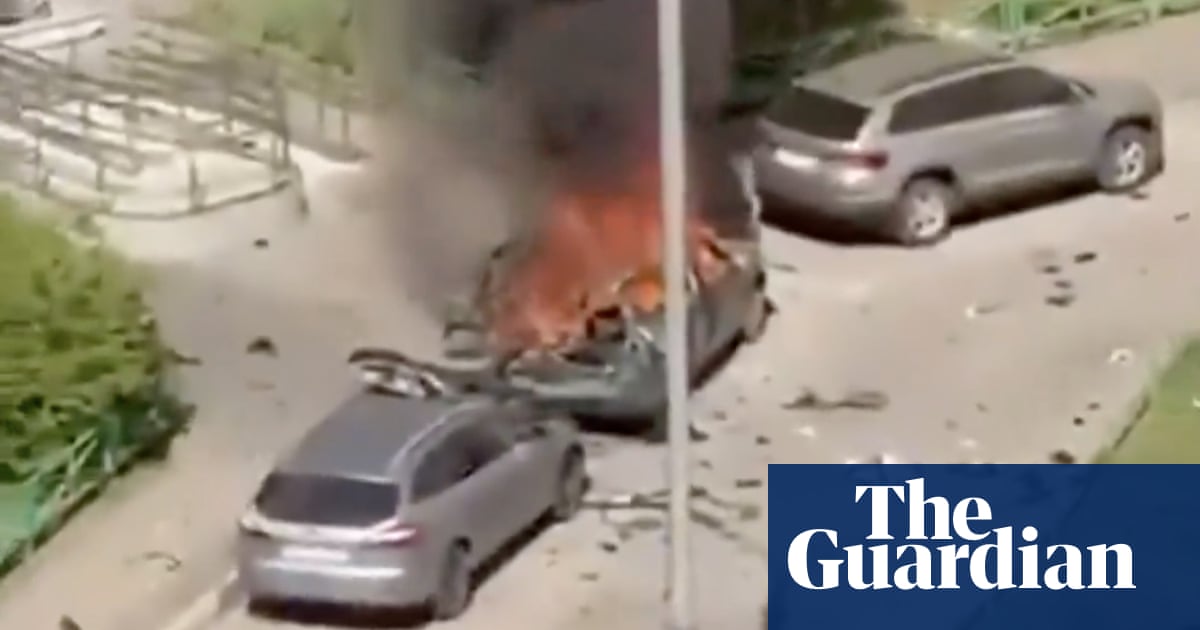A senior Russian military official was killed in a car explosion near Moscow on Friday, just hours before a Kremlin meeting between Vladimir Putin and Donald Trump’s special envoy Steve Witkoff.
The Russian authorities named the officer as Lt Gen Yaroslav Moskalik, the deputy head of the main operations directorate of the general staff of the Russian armed forces.
The blast appeared to be similar in nature to previous attacks on Russians that were later claimed byUkraineand could cast a shadow over Friday’s talks between Moscow and Washington.
The Russian investigative committee said the explosions were caused by the detonation of an improvised explosive device packed with shrapnel. The committee, which investigates major crimes, said it had opened a criminal case.
Baza, a Telegram channel with sources in Russia’s law enforcement agencies, said a bomb in a parked car in the town of Balashikha in the Moscow region had been detonated remotely when the officer, who lived locally, walked past.
A video circulating on Russian social media captured the moment the car exploded, while additional images showed the vehicle completely burned out.
Kyiv has not yet commented on the incident.
But the latest apparent Ukrainian operation is unlikely to sit well with the Trump administration, which has been desperate to show tangible progress on peace before Trump’s 100th day in office next week.
Despite Putin’s refusal to agree to a ceasefire and continued missile strikes on Ukraine, the US president has repeatedly criticised Volodymyr Zelenskyy over stalled peace talks, while adopting a more cautious tone toward the Russian leader.
Since the start of the full-scale invasion, Ukraine has targeted dozens of Russian military officers and Russian-installed officials whom Kyiv has accused of committing war crimes in the country. Little is known, however, about the clandestine Ukrainian resistance cells involved in assassinations and attacks on military infrastructure in Russia and Russian-controlled areas.
Last December, Ukraine’s security services targeted another senior Russian general who was killed after an explosive device hidden in an electric scooter detonated outside an apartment building in Moscow.
At the time, Keith Kellogg, Donald Trump’s appointed special representative for Ukraine and Russia, criticised the killing of Kirillov, saying it could violate the rules of warfare.
Apart from military figures, Ukraine has targeted prominent Russian pro-war propagandists including Darya Dugina, the daughter of an ultra-nationalist Russian ideologue, who waskilled in 2023when a bomb blew up the Toyota Land Cruiser she was driving.
The 59-year-old Moskalik was part of several high-profile Russian foreign delegations in recent years, including at least two rounds of talks with Ukraine and western officials in 2015 and 2019, as well as a 2018 visit to meet the Assad regime in Syria.
Insiders close to the defence ministry say his influence within the Russian military was on the rise.
“According to chatter behind the scenes, one scenario for personnel reshuffling at the general staff had Moskalik being considered as a potential head of the national defence management centre – primarily due to his methodical approach and thoughtfulness,” wrote Mikhail Zvinchuk, a popular Russian military blogger with ties to the defence establishment.
